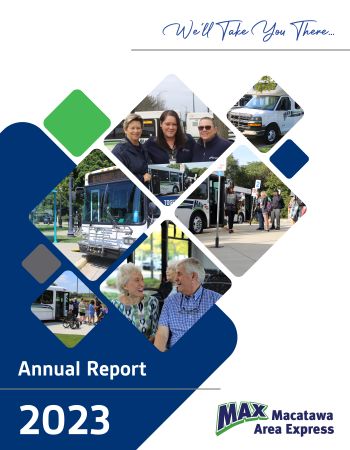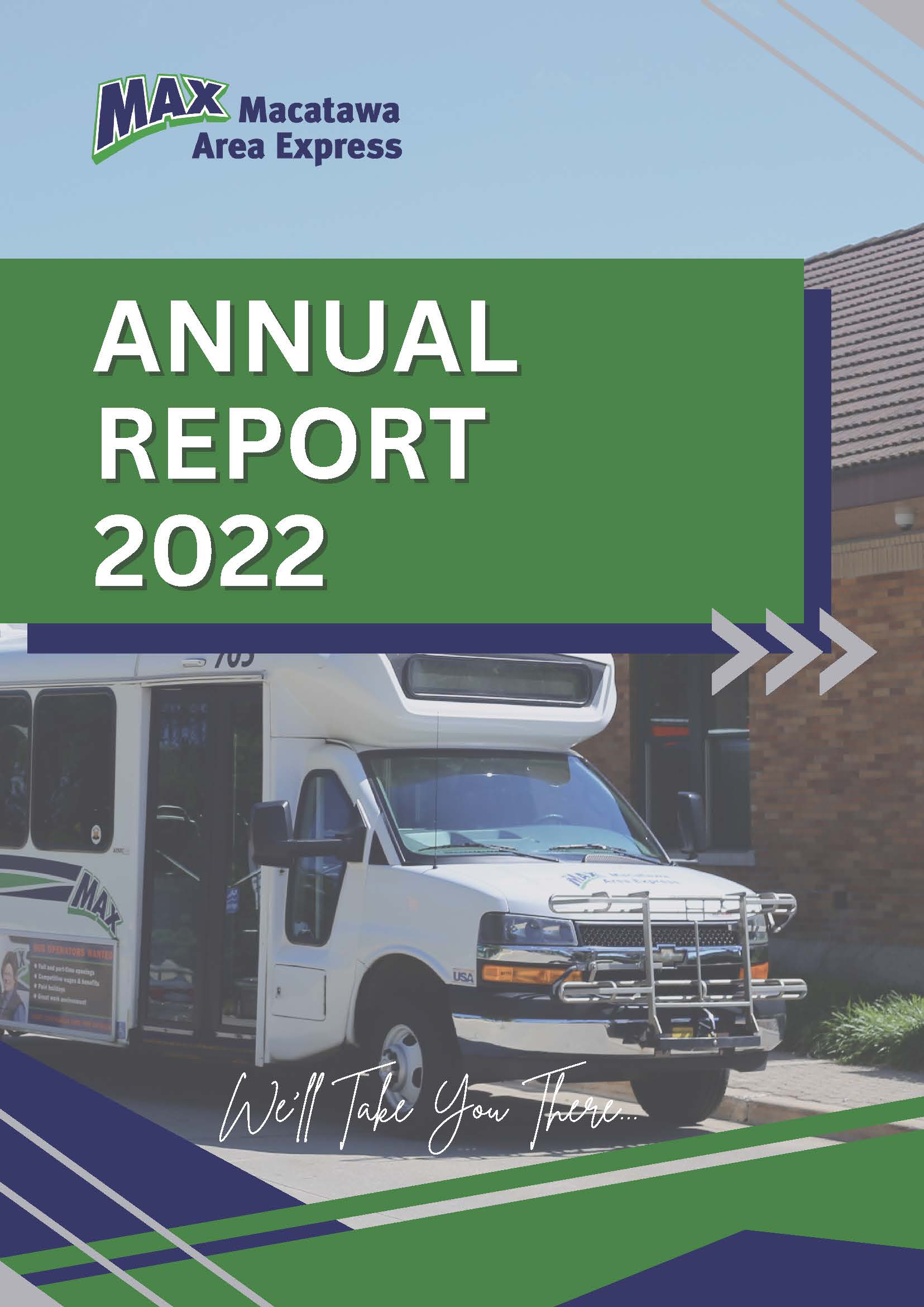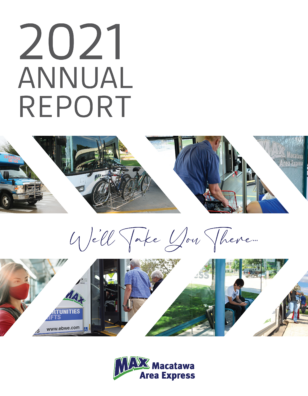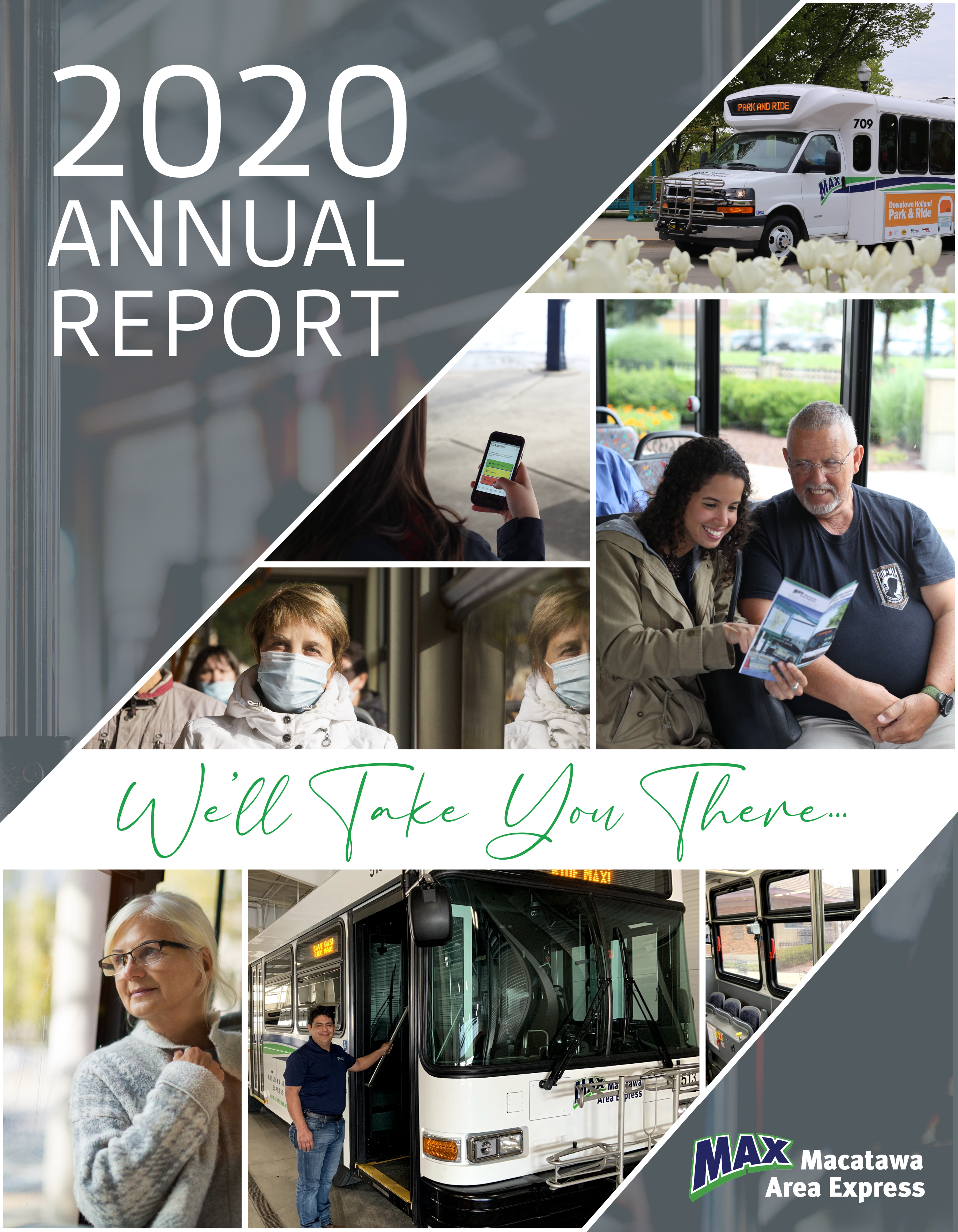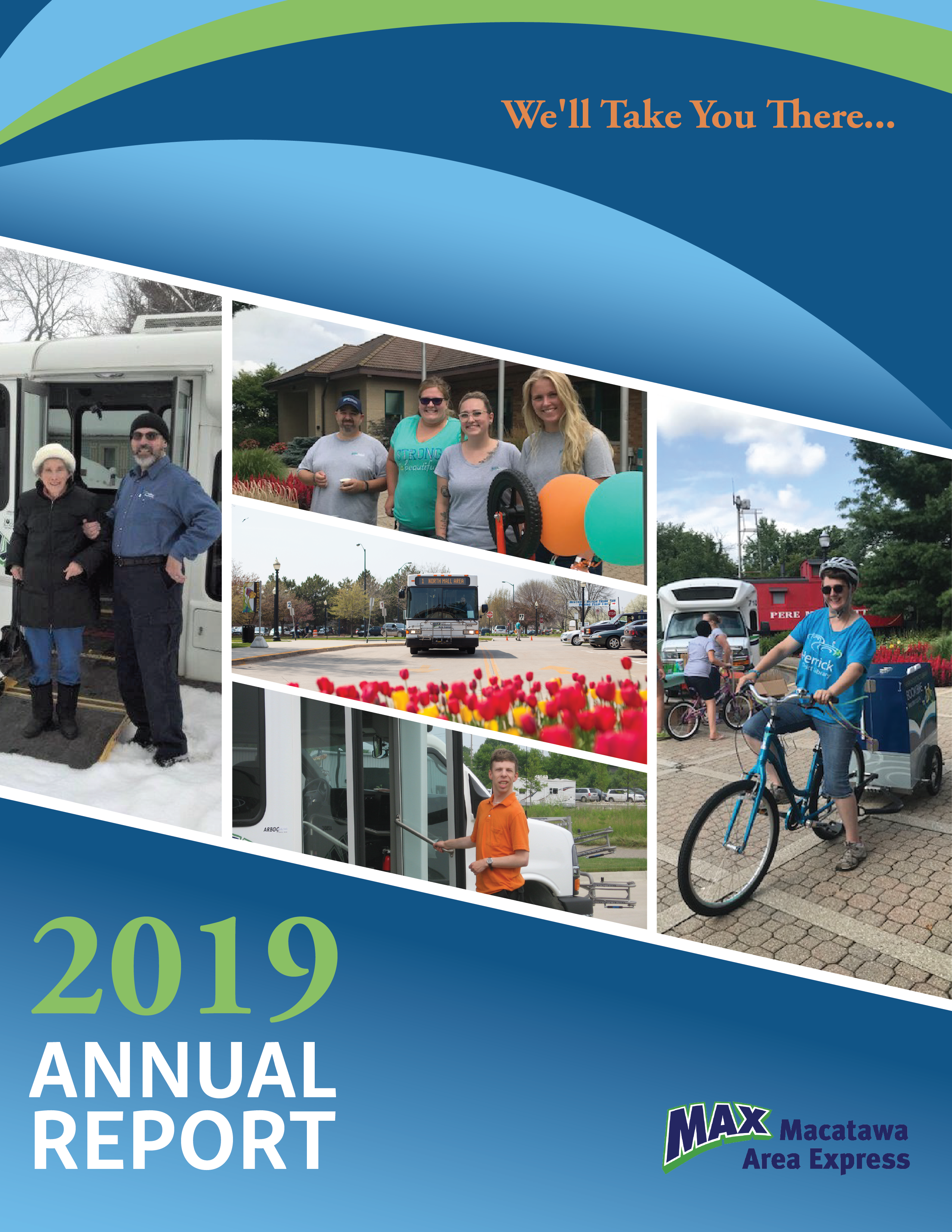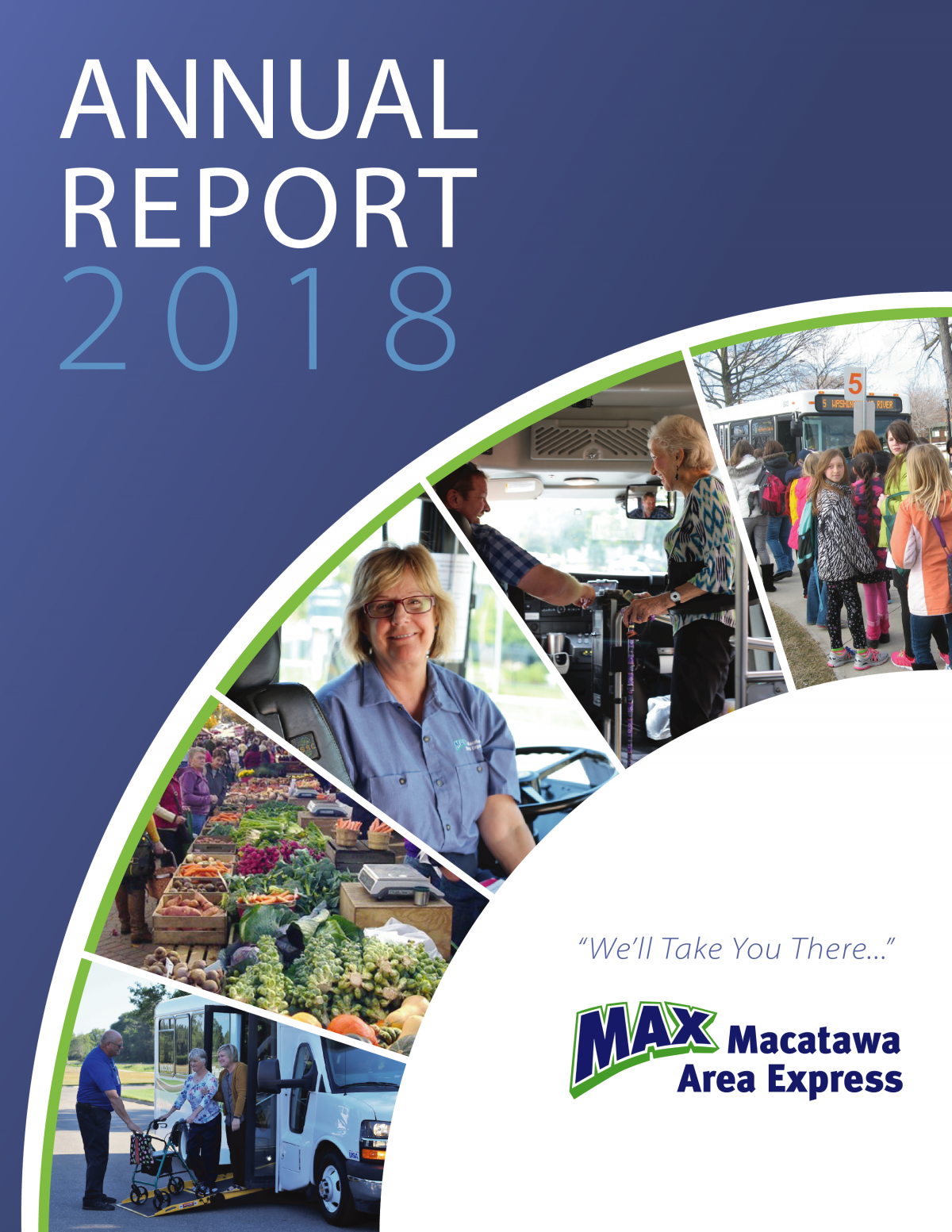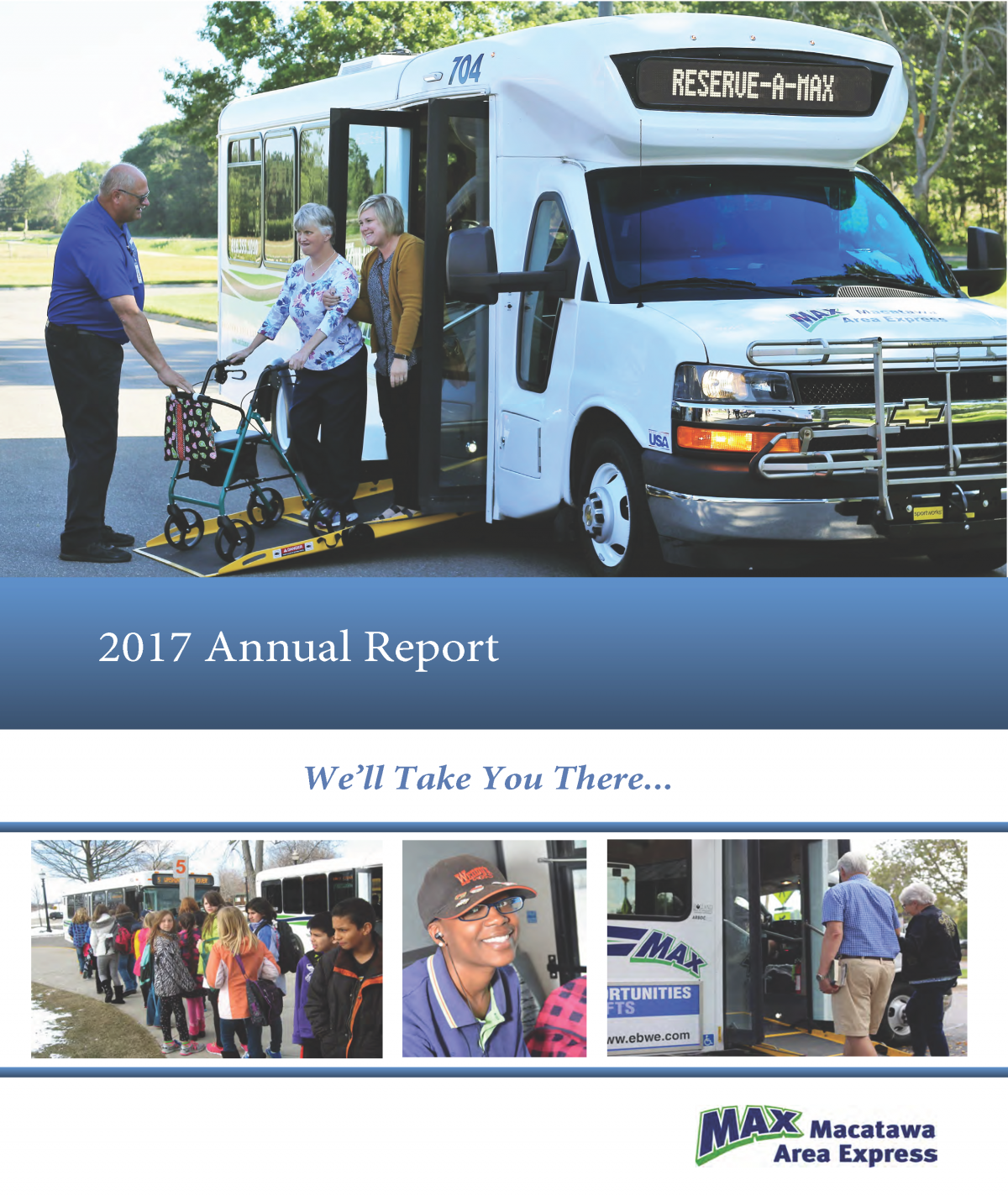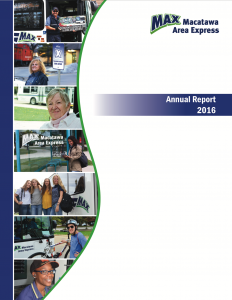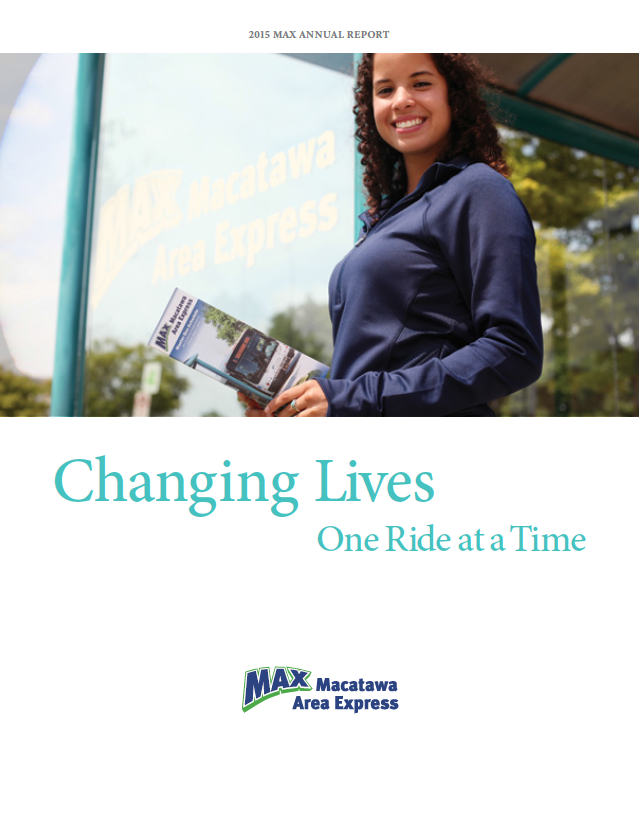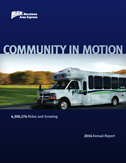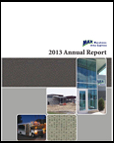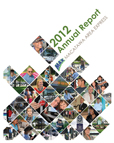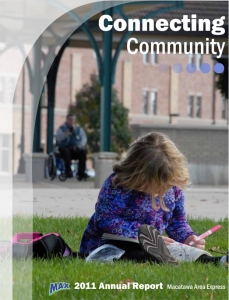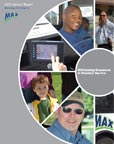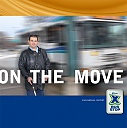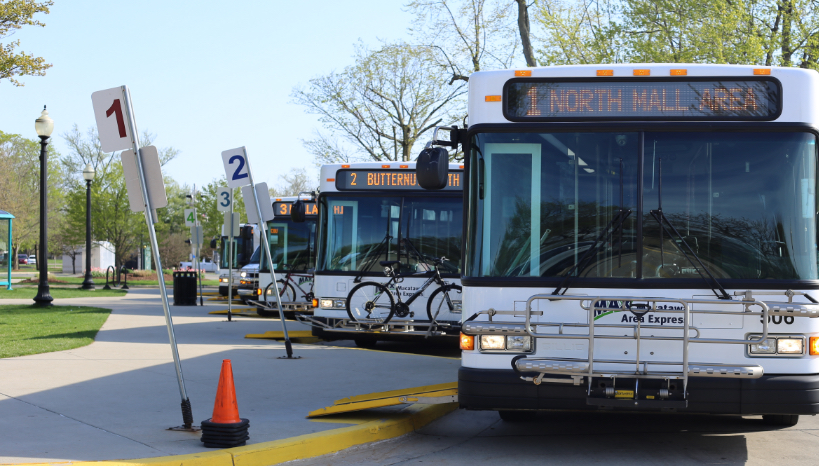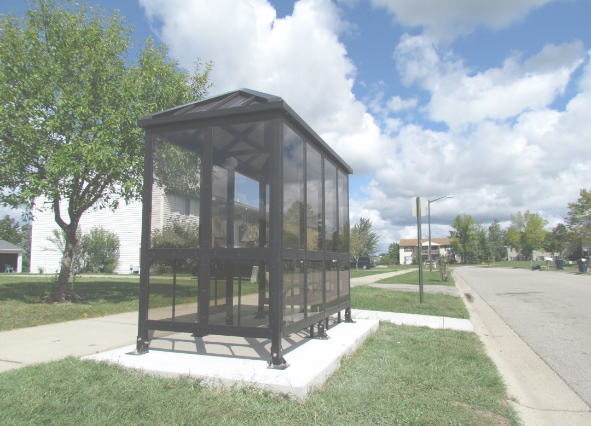About Us
The Macatawa Area Express (MAX) is a small urban transit system that has operated fixed bus routes and demand response service since 2000. The transit system is governed by an independent Authority formed under Public Act 196 on July 1, 2007, when the City of Holland transferred oversight to the Authority Board.
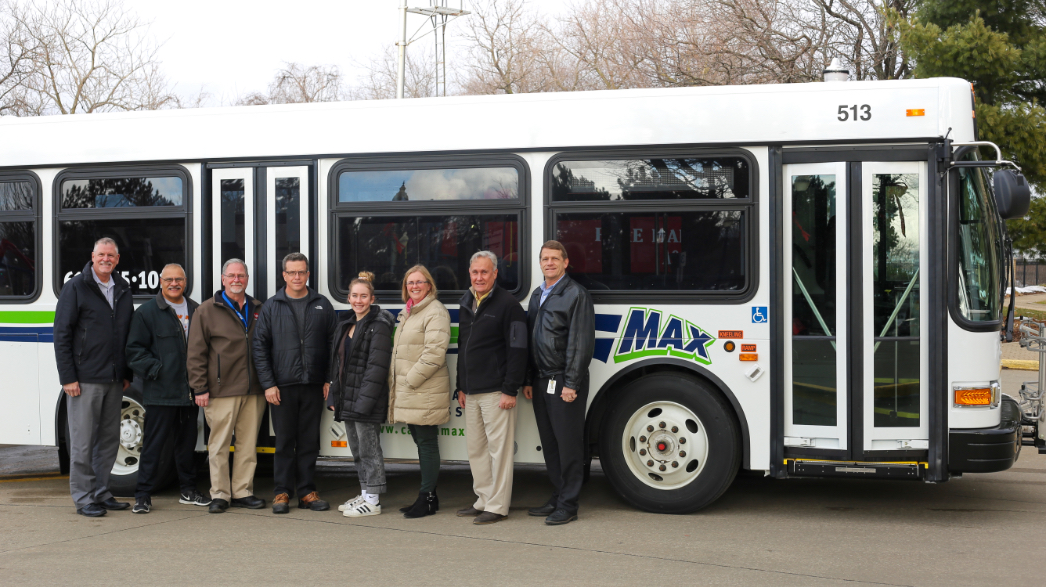
Transportation Authority Board
The Board of Directors is comprised of representatives appointed by the City of Holland and Holland Charter Township, and an ex-officio member appointed by the City of Zeeland and one appointed by Park Township…, and an ex-officio member appointed by the City of Zeeland and one appointed by Park Township, which contract for bus services under service agreements with the Authority. Board meetings are held at 3:30 p.m. the forth Monday of the month at MAX’s Operations Center.
Constructed in 2013, MAX’s Operations Center is located at 11660 Greenway Drive in Holland Township. MAX is funded primarily with federal and state funding, as well as a dedicated transit millage of 0.4 mills. Passenger fares also provide about 6 percent of total revenue for operations.
MAX employs approximately 80 full and part time staff, and is managed by an Executive Director, who reports to the Board.
MAX Transportation Authority Board Members
Russell TeSlaa – Chairperson, Holland Charter Township
Jason Latham – Treasurer, Macatawa Area Coordinating Council
Meika Weiss – Secretary, City of Holland
Nathan Bocks – Member, City of Holland
Kristin Myers – Member, Disability Network/Lakeshore
Kevin Klynstra – Ex-Officio, City of Zeeland
Jan Steggerda – Ex-Officio, Park Township
Margo Walters – Member, Holland Charter Township
Doug Becker – Member, Holland Charter Township
Abbe Baas – Student Advisor
MAX Staff
Ryan Novotny – Executive Director
Beth Higgs – Deputy Director/Marketing Manager
Juana Lopez – Administrative Assistant/Transit Specialist
Authority Board Schedule
NEXT MEETING
PUBLIC HEARING
June 2, 2025
3:30pm
11660 Greenway Dr. Holland, MI 49424
Monday, January 27, 2025 – Public Notice
Monday, February 24, 2025
Monday, March 24, 2025
Monday, April 28, 2025
Monday, June 2, 2025 – Public Notice
Monday, June 23, 2025
Monday, July 23, 2025
Monday, August 25, 2025
Monday, September 22, 2025
Monday, October 27, 2025
Monday, November 24, 2025
Monday, December 22, 2025
Agendas and Meeting Minutes
Board Agendas
Audits
Financials
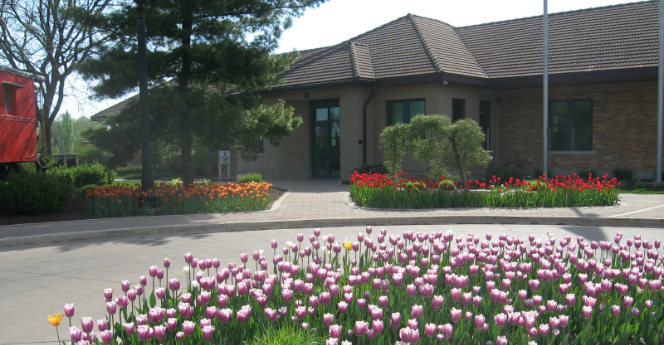
Local Advisory Council (LAC)
The LAC is a citizen’s advisory council that reviews operational matters for the transit system and provides input and suggestions for improvements that would benefit transit users. Students, residents, older adults and people with disabilities who use the transit system are encouraged to volunteer to serve on the LAC.
Current LAC
Members
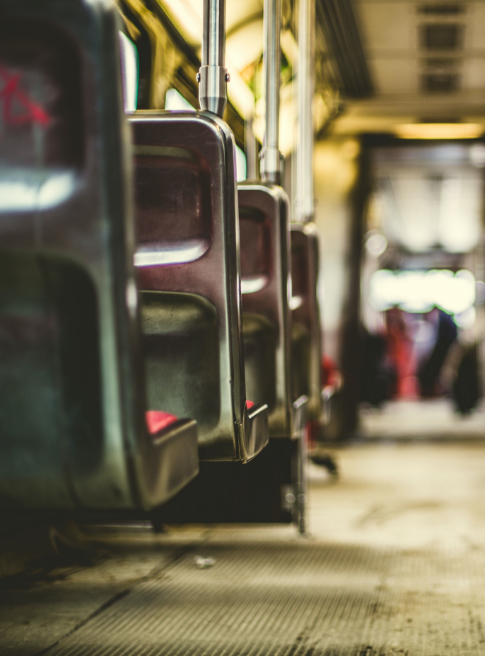
1. Supports the Local and State Infrastructure
Public transportation is an essential part of a community’s infrastructure, providing the means and freedom of travel and independence for many of local residents. MAX is one of 117 public transit providers across Michigan that collectively provides over 110 million rides annually. Each year, MAX provided almost 500,000 rides to area residents
2. Provides Access to Vital Services
Public transit allows people to remain mobile, engaged and connected. It provides access to jobs, medical visits, shopping, and educational and social opportunities for those who cannot drive, choose not to, or cannot afford the costs of a personal vehicle.
3. Fuels Our Economy
Perhaps the most obvious benefit of public transportation is economic development. It provides people with access to jobs and training so they can contribute to our economy. Numerous studies confirm that up to 50 percent of all daily trips on transit are for travel to and from work. People are riding the bus to either to spend money or to make money – and that’s great for our economy.
Investing in local transit also creates direct and indirect economic benefits. In Michigan, public transportation creates and sustains nearly 6,000 direct jobs for workers employed by transit providers, and thousands more through those who work to supply our state’s transit industry. This creates induced spending from the circulation of those same dollars within our community to support other jobs and related spending. In rural areas, studies have shown that the economic benefits of transit exceed costs by a three-to-one margin, while metropolitan areas have demonstrated a $6 return for every transit dollar invested.
4. State Transit Investments Leverage for Federal Dollars
State investments in public transportation allow transit agencies to qualify for additional federal funding. The more Michigan invests in transit, the more federal dollars Michigan’s transit fleets and infrastructure can secure for capital and operational improvements. Failure to provide adequate state funding results in a significant loss of federal capital funding needed to support public transportation.
5. Transit Supports Tourism
Our state’s popular “Pure Michigan” campaign attracts visitors and tourists to our state, generating more than $17 billion in revenue. Once they get here, public transit keeps them connected and engaged with area festivals, attractions and events. Moving masses of people is what public transit does best.
According to the 2012-2017 Michigan Tourism Strategic Plan, one primary objectives of the Pure Michigan program is to “support the improvement and increased awareness of the quality, connectivity and diversity of tourist transportation options into and throughout the state.” This is done through transportation improvements that enhance the visitor’s experience, such as road repairs, mass transit, shuttles and regional airports.
6. Transit is Safer than Driving
According to the National Safety Council, using public transit is safer than a car. In fact, riding the bus is 170 times safer than travelling in a car!
7. Transit Reduces Traffic and Congestion
If one bus can move 24 or more passengers, that’s 20 fewer vehicles on the road. Most trips are made in single occupant vehicles. Fewer cars on the road mean less traffic, congestion and frustration. Besides, riding the bus is more relaxing and gives you time to do other things, like check on voice mails and emails, read the newspaper, and do work or homework. It’s productive time.
8. Transit Use Saves Money
Transportation is the second largest expense in most households, and the average cost of owning and operating a vehicle is about $8,000 per year. When adding in the cost of city parking, individuals who ride public transportation instead of driving can save more than $10,000 per year, according to a study by the American Public Transportation Association (APTA). People can reduce their household budget by giving up one family car and instead using transit. It can save you thousands of dollars in transportation costs annually.
In fact, nearly 6 percent of Holland area residents use MAX, which is nearly double the national average use rate for transit systems and community’s of this size. (Source: MP2 Planning Consultants, 2011)
9. Transit is Good for the Environment
While Michiganders have a strong affection for their cars, more residents strive to be good stewards of the environment. Using public transit — even occasionally — reduces harmful emissions. Public transportation preserves air quality.
Mass transit produces 95 percent less carbon monoxide (CO) per passenger than private vehicles, and nearly 50 percent less carbon dioxide (CO2) and nitrogen oxide (NOx). A single person commuting alone for a 20-mile round-trip can reduce his/her annual CO2 emissions by 4,800 pounds per year by choosing to use public transportation. This is equal to a ten percent reduction in all greenhouse gasses produced by a typical two-adult, two-car household.
By eliminating one car and taking public transportation instead of driving, a savings of up to 30 percent of carbon dioxide emissions can be realized. Using public transit also saves almost 4 million gallons of fuel per day, making us less dependent on foreign oil.
To encourage the use of public transit, MAX offers free fixed route rides on designated Clean Air Action Days and Earth Day, as well as the four scheduled election days in Michigan. So you can help clear the air and exercise your right to vote by riding MAX.
10. Drives Innovation and Technology
Michigan’s transit systems routinely partner with industry suppliers, research institutions and trade associations to reduce costs, improve services and support the design, development and testing of new technology to operate more efficiently, reduce costs, and improve passenger services.
The investment in new technology that supports public transit expands the market for Michigan-based products and services, and supports the growth of new jobs in our state. Just some of the new technologies being used by transit systems include mobile data systems with Automated Vehicle Location (AVL), real-time performance tracking, and rider tool applications and convenient web interfaces.



